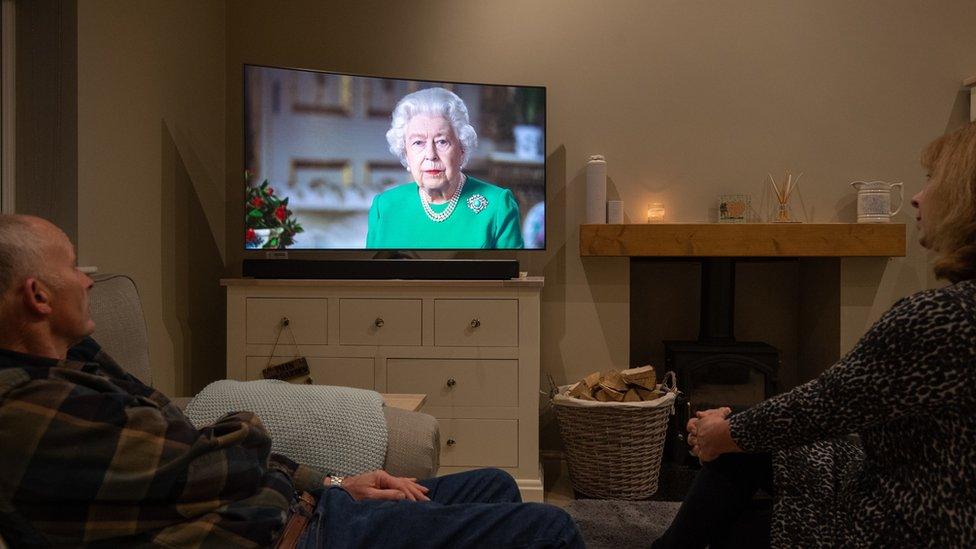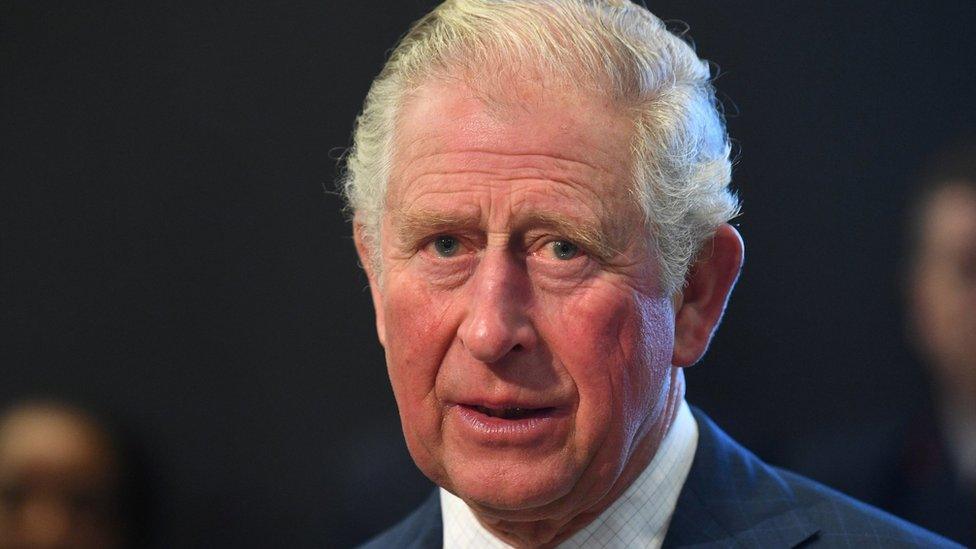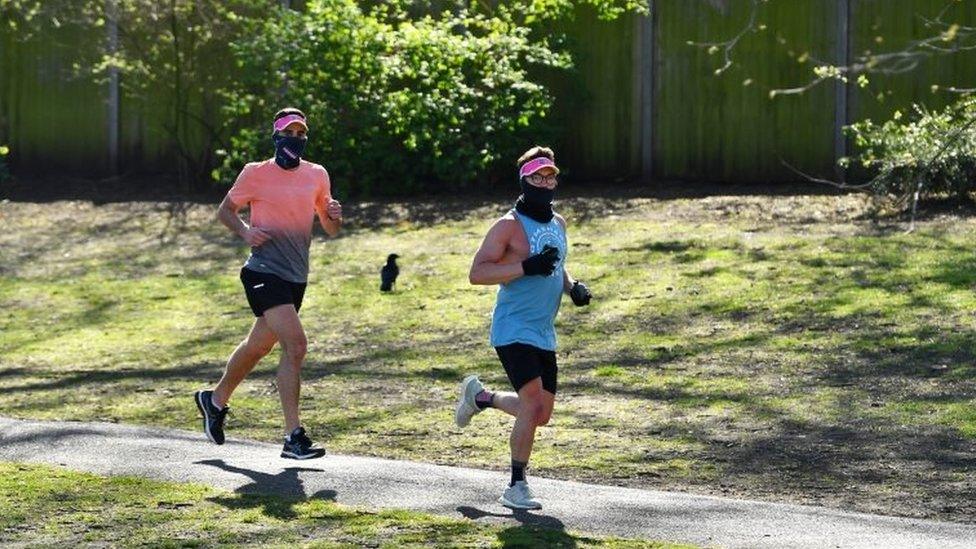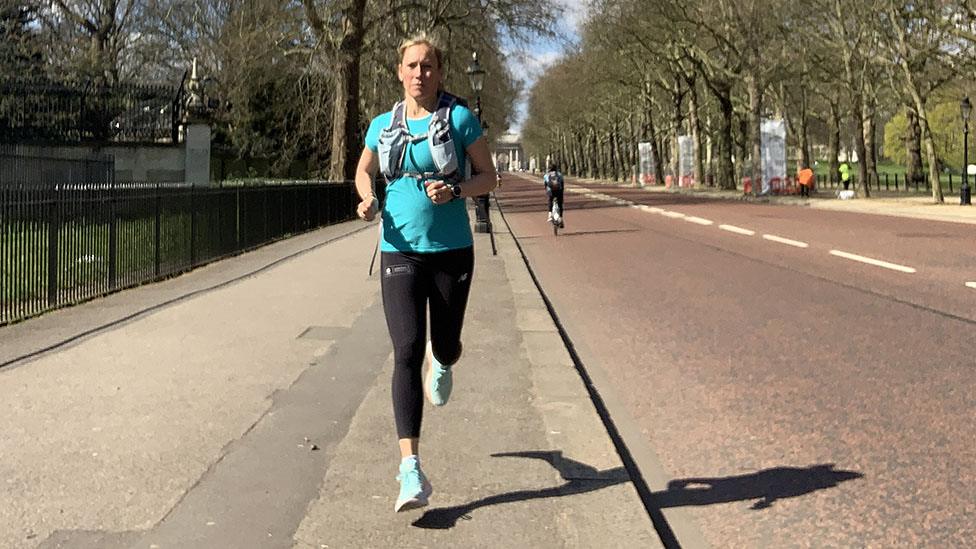Queen's coronavirus speech: 'Ambitious' words 'to reassure and inspire'
- Published

People across the UK gathered to watch the Queen's address
There have been difficult royal speeches and addresses in the past - times when the wrong word or the wrong phrase could have undermined the message or let slip a critical opportunity.
The broadcast after the death of Diana, Princess of Wales in 1997 for example, or the speech the Queen gave on her visit to Ireland in 2011.
The Palace could have played it safe, stressed unity and given thanks. It would have served.
This was a different and much more ambitious broadcast, designed to reassure and to inspire.
But most of all to recast the coronavirus crisis as a defining moment for a nation which will forever remember its collective effort to save the lives of its vulnerable.
Given the number of Second World War metaphors and comparisons that are around at the moment - a war the Queen remembers well - the temptation might have been to draw parallels to that conflict.
But the only direct reference was to her first ever radio broadcast, in 1940, when the Queen - then a young princess - and her sister Margaret, spoke to children who had been evacuated.
The Queen: "We will be with our friends again, we will be with our families again, we will meet again"
It was a reminder, not just of the innocence of childhood and of the sacrifices of an earlier generation, but of her long perspective on Britain's history.
Echoes of that struggle of the 1940s, which for so long defined Britain and its self-image, ran through the broadcast.
Winston Churchill said, after the fall of France in 1940, that even after a thousand years it would still be said of Britons that "this was their finest hour".
Today the Queen spoke of how history would judge the nation - that "those that come after us will say the Britons of this generation were as strong as any".
"The pride in who we are is not part of our past," she said, "it defines our present and our future".
The Queen did not revert to talk of Blitz spirit; instead she celebrated the communal feeling that exists today.
The applause for care and essential workers she said is "an expression of our national spirit" and "its symbol will be the rainbows drawn by children".
There was no talk of fighting, of struggle, of conflict. Instead she spoke of more peaceful national traits - "self-discipline", "quiet, good-humoured resolve" and "fellow-feeling".

The Queen's eldest son, Prince Charles, spent seven days in isolation after testing positive for coronavirus
This was not a warrior-queen's speech; it was about collective effort.
"Together we are tackling this disease," she said. "If we remain united and resolute, then we will overcome it."
"We will succeed," she insisted, "and that success will belong to each and every one of us".
There was time for some great-grandmotherly wisdom; she, who occupies an often lonely position, offered her thoughts to those who are now alone though self-isolation.

A SIMPLE GUIDE: How do I protect myself?
AVOIDING CONTACT: The rules on self-isolation and exercise
LOOK-UP TOOL: Check cases in your area
MAPS AND CHARTS: Visual guide to the outbreak
VIDEO: The 20-second hand wash

Hard times, she acknowledged, but also perhaps an opportunity "to slow down, pause and reflect, in prayer or meditation".
And at the end, one more echo of the conflict that so often this crisis has been compared to. The defining song of the Second World War was for many Vera Lynn's We'll Meet Again - a longing for better times to come.
"Better days will return," said the Queen. "We will be with our friends again; we will be with our families again; we will meet again."
- Published5 April 2020

- Published5 July 2022

- Published5 April 2020

